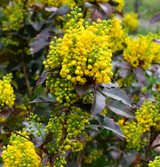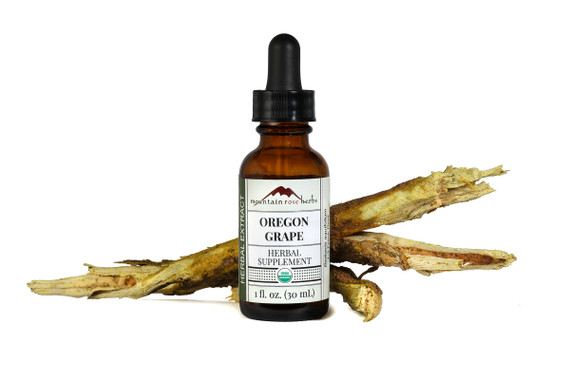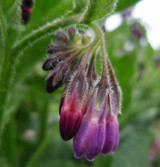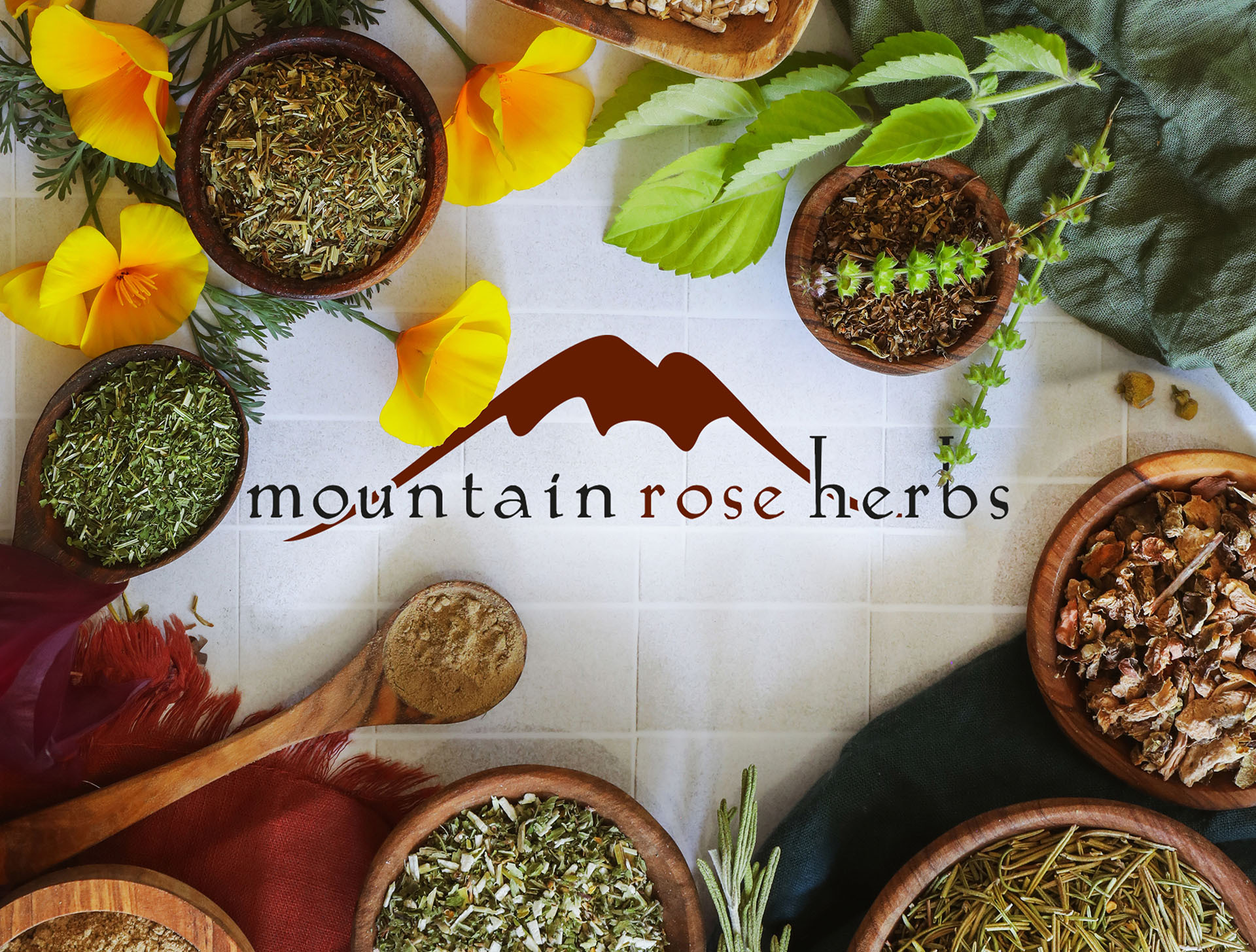Native to western North America, Berberis aquifolium is known for its yellow roots, holly-like leaves, and tart, blue berries that resemble a cluster of grapes. Oregon grape is a member of the Berberidaceae family and its roots contain the chemical constituent berberine, thought to be responsible for many of the plant’s healthful benefits. A fine substitute for goldenseal, Oregon grape root can be extracted, added to herbal tea blends, and employed in topical care formulas.
Oregon grape is native to western North America and is particularly prominent in the Pacific Northwest as the name suggests. The Oregon grape is a bushy, flowering perennial with shiny, holly-like leaves. It is commonly found in mountainous regions and adapts easier to its environment than the closely related barberry.
The leaves of Oregon grape are dark green and prickly, turning orange and eventually brilliant red after a few years of aging. The plant reaches between two and six feet in height and produces small blackish-blue berries that resemble tiny grapes. These berries are edible but not palatable, possessing an intensely tart flavor that herbalist Michael Moore compares to sucking simultaneously on a Vitamin C tablet and aspirin. Other common names for Oregon grape include holly-leaf barberry, mountain grape, Oregon grapeholly, and Oregon barberry. Berberis may also be known by its botanical synonym Mahonia. It belongs to the Berberidaceae family.
The golden yellow root of Oregon grape is commonly harvested as a medicine, and is sometimes substituted for goldenseal, as the two herbs have similar constituent properties. Oregon grape has been clinically shown to support certain skin irritation when used externally. It is also traditionally used as a bitter tonic to stimulate digestion and externally for its antimicrobial properties. The active constituents in Oregon grape root have shown substantial antimicrobial and antifungal activity in vitro, though these activities are unproven in human trials.
Precautions
Not for use in pregnancy except under the supervision of a qualified healthcare practitioner. We recommend that you consult with a qualified healthcare practitioner before using herbal products, particularly if you are pregnant, nursing, or on any medications.
This information has not been evaluated by the Food and Drug Administration. This product is not intended to diagnose, treat, cure, or prevent any disease. For educational purposes only.













